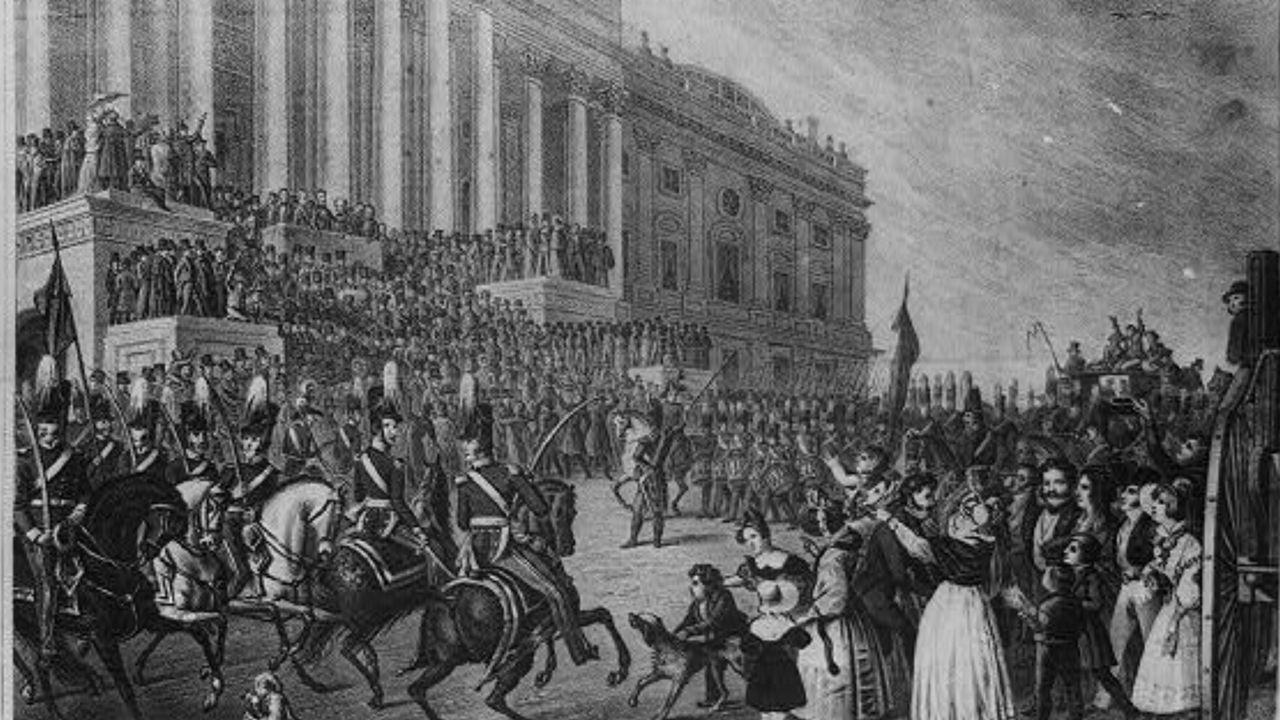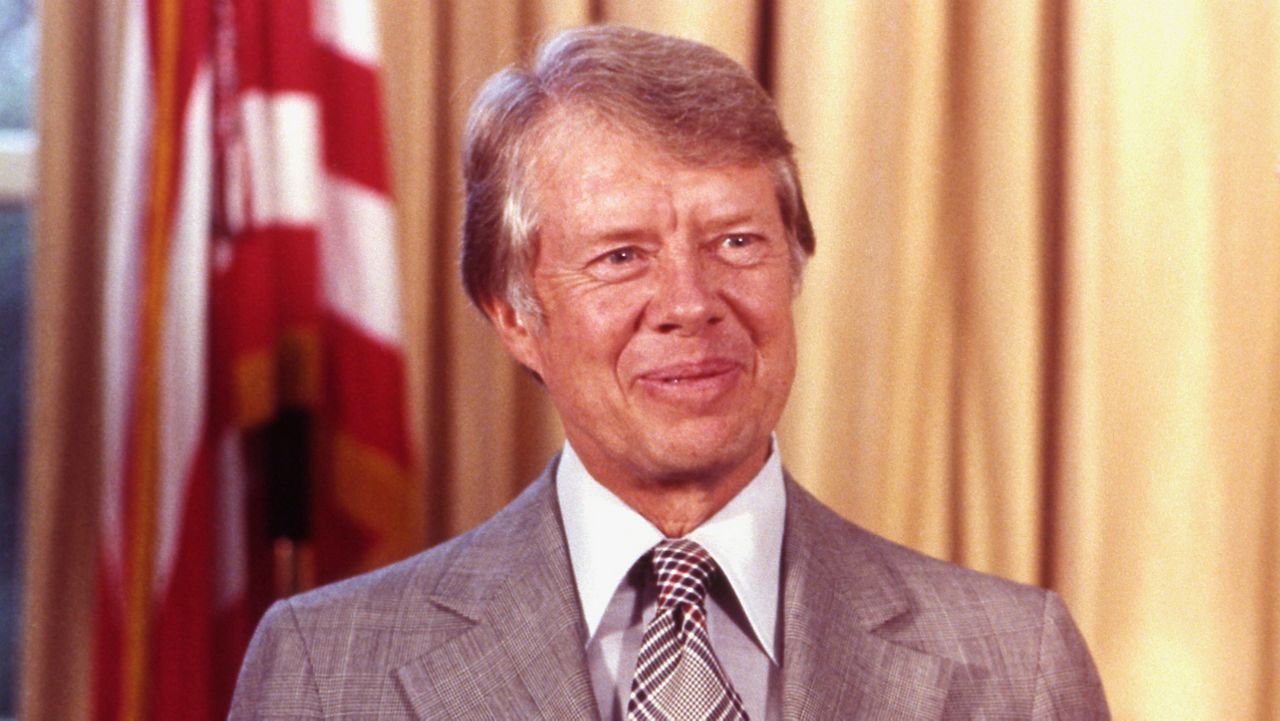MADISON, Wis. — The Governor's Task Force on Climate Change released its final report detailing actions the state can take to address a changing environment.
The Report includes 55 climate solutions aimed at reducing carbon emissions, bolstering the green energy economy, building resilience to intense weather events, and protecting existing resources.
“I think with this report we have an opportunity to push Wisconsin into a clean energy future,” said Lt. Governor Mandela Barnes (D-Wisconsin). “What that means is we're providing economic opportunities, we're providing opportunities for a cleaner, safer and healthier environment for folks all across Wisconsin.”
Barnes chaired the Task Force which included stakeholders from various industries, local governments, tribal groups, and nonprofits. Governor Tony Evers (D-Wisconsin) created the task force with an executive order in 2019.
The group explored scientific data and projections, listened to ideas from the stakeholders in the task force, and held several public opportunities to provide input as well. The final report was released Wednesday.
“It was with the input of the members, input from members of the public, public participants who brought this all together and made this document whole,” Barnes said.
The report takes aim at carbon. It calls for carbon emissions from utilities to be reduced by 60% by the year 2030 and 100% by 2050. It also looks to industries like agriculture and forestry to help capture carbon as well as building a more robust green energy sector to help reduce emissions.
“Just having executives that are out there talking about the need for us to tackle climate change is huge, and it's going to set us on the right path,” said Amber Meyer Smith, a member of the task force and Vice President of Programs & Government Relations with Clean Wisconsin.
Smith said the actions bring Wisconsin more in line with other midwestern states when it comes to climate action and renewable energy.
“The clean energy economy is kind of passing us by when we are not in the middle some of these policy solutions,” she said.
The 55 actions require either executive, legislative and budgetary action — or some combination of the three. Barnes said the Task Force was bipartisan and legislators on both sides of the aisle are aware of the steps.
“I think there is definitely support in one form or another, especially when it comes to the positive impact that it has on so many areas,” Barnes said.
Neither Assembly Speaker Robin Vos (R-Rochester) or incoming Senate Majority Leader Devin LeMahieu (R-Ootsburg) returned a request for comment on the report.
The individual actions range in steps like an executive order, creating tax incentives, reworking statutes, and several other varieties of action.
Barnes said the report recognizes the impact climate change has on all communities in Wisconsin — urban, suburban and rural. However, the report also recognizes that minority and low-income communities often the most likely to experience air and water pollution.
“Too often communities that have already been marginalized are the ones that bear the brunt of the impacts of climate change despite having very little to do with it,” Barnes said.
One of the steps the report lays out is the creation of an Office of Environmental Justice to address pollutants that have deadly impacts on marginalized communities.
The report details several step in the energy sector. On top of cutting down on utility carbon emissions, it aims to create and bolster existing energy and carbon reduction incentive programs.
Some of the actions in the report support developing community solar projects and create tax incentives for clean energy. It also encourage the development of energy storage and microgrids.
“When renewable-powered microgrids are coupled with battery storage, they can also serve as tools to support community resilience during broader weather or security-caused outages,” the report said.
When it came to transportation, the report suggested the Department of Transportation conduct an audit to explore the climate and environmental justice impacts in Wisconsin. It also aims to increase regional public transportation through high speed rails and expand pedestrian and bike access.
The report also includes steps the state agriculture industry can take to addressing climate change. One of the suggestions is paying farmers for putting plants in their fields aimed at sequestering carbon into the soil, a similar plan as President-Elect Joe Biden has. Barnes said it will be beneficial for the state's climate actions to be in line with that of the new White House Administration.
“The more things that overlap the better in my opinion,” Barnes said.
The report details steps to further incentivize land use with things like cover crops, reducing tillage and increasing livestock grazing practices. The USDA has already invested into increasing grass grazing practices in the midwest through a grant to the University of Wisconsin
Smith said agriculture groups on the Task Force were excited to be a part of the solutions.
“Because at the end of the day it helps them,” Smith said. “It helps their operation and it helps tackle some of these water quality problems that we're having in Wisconsin.”
The report identifies supporting local food systems as a key way to help the climate through investing in buy local programs.
It also looks at larger farm practices, encouraging the Wisconsin Attorney General and Department of Justice to investigate agricultural monopolization — though that suggestion was part of the report's “Tier 2” suggestions which drew both support and concern from the Task Force.
“A highly consolidated agricultural industry, in which a few companies control the majority of inputs, can reduce market competition and stifle innovation, thereby limiting the ability of individual farmers to adopt more conservation practices amidst these economic pressures,” the report said.
The report also suggests the state invests in extreme weather-resilient systems. It proposes doing this through steps like updating rainfall projections models to reflect updated climate data. It also suggests the state develop a flood resistance plan to identify at-risk areas and help communities become flood resistant.
“When it comes to the amount of money that is lost due to historic levels of flooding, when it comes to the amount of money that is spent on preparing infrastructure that has been destroyed by these extreme weather events, this is a resilience plan,” Barnes said.
Part of that plan is adding incentives for wetland protection and restoration. Wetlands act as a natural buffer for excess precipitation and can keep floodwaters out of communities.
Tax incentives to prevent the conversion of forests to other types of landscapes are also included. It also wants to create incentives and programs for reforestation and tree planting in both rural and urban settings.
The Task Force also suggests the legislature classify carbon as a forest product.
“Defining carbon as a forest product would help strengthen an emerging carbon market and incentivize growing trees and help to store additional carbon,” the report said. “This change would incentivize the inclusion of increasing carbon storage as part of forest management.”
The report aims to integrate climate change and the environment into the school curriculum. It also suggests a public education campaign on the impacts of climate change.
The report details several steps to increase education opportunities for people to be involved in clean energy jobs as well as transition programs for people leaving one energy sector to get a job in another.
Barnes said the state should start training people now for jobs in renewable energy.
“I don't think there's any reason to wait,” he said. “We should get on top of these things as soon as possible. I'll remind you that Wisconsin is playing catch-up at this moment, we were once a leader when it came to climate change and renewable energy production, that's not the case anymore.”
The actions will ultimately require a tremendous amount of work and investment, though a price tag has not been associated with the report as a whole or individual suggestions. Climate scientists have maintained that investments now will cut down on climate-related expenses later.
With the report released, Barnes said Wisconsin needs to start working towards a more sustainable future.
“Wisconsin has an opportunity, and the time is now to take advantage of that opportunity to be aligned with where other states are at,” Barnes said.










